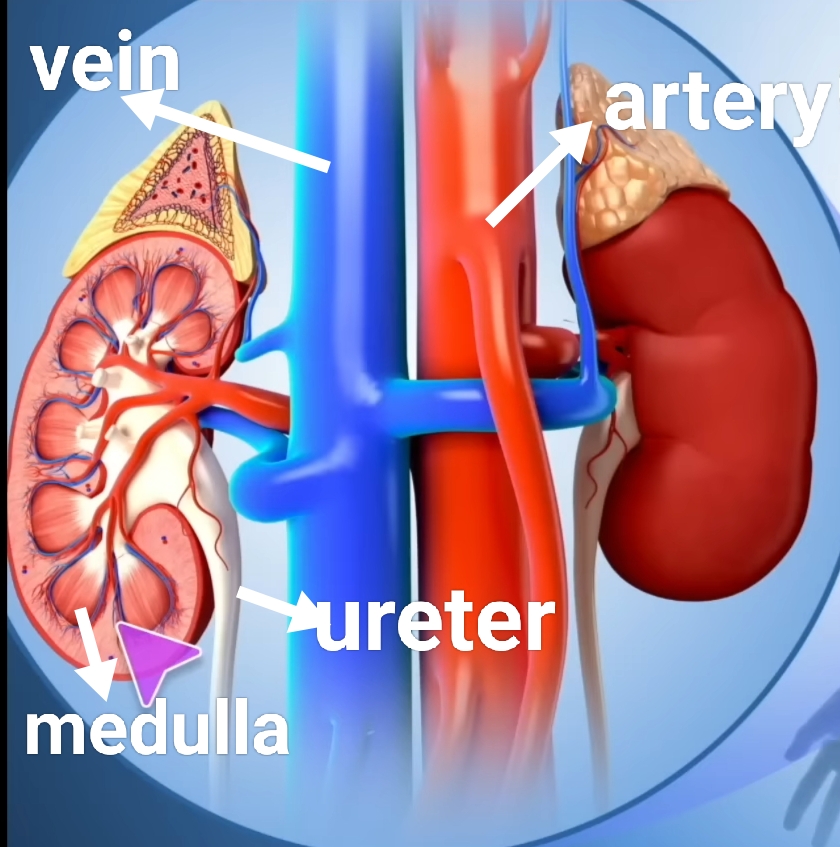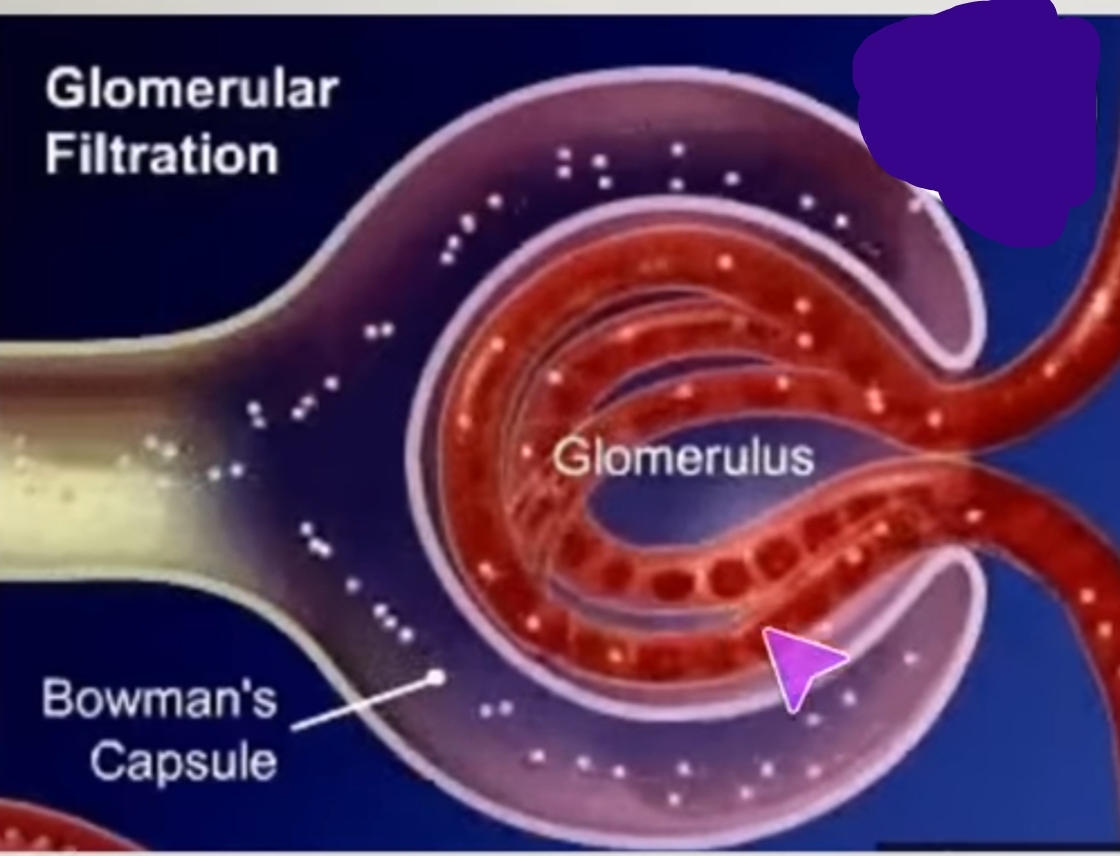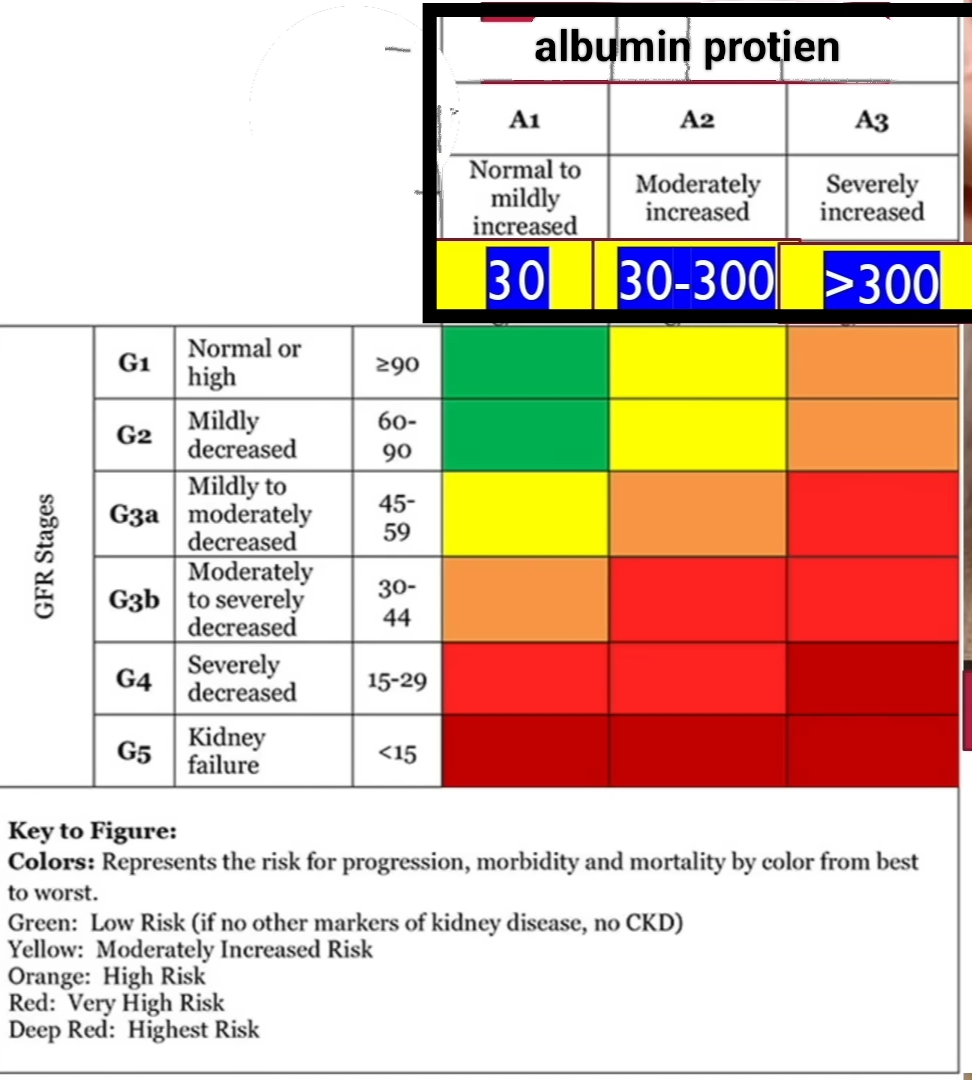Visitors have accessed this post 143 times.
Introduction:
Our kidneys play a vital role in filtering waste and maintaining the balance of fluids in our bodies. Despite their small size and weight, they efficiently filter a substantial amount of blood every day. This article explores the functions of the kidneys, the risks of kidney failure, and the importance of early detection through tests and symptom recognition. And detoxifying method.
Kidney Function and Filtering Process:
Each day, our kidneys filter approximately 180 liters of urine from the blood, but only a small fraction is excreted. The remaining 99% is reabsorbed by the body. With a weight of just 130 grams each, both kidneys work together to filter the total 5.5 liters of blood in our bodies multiple times throughout the day. This remarkable capacity allows the kidneys to handle a significant workload.
Structure of kidney:
The kidney has a pyramid-shaped medulla housing filtering units called nephrons.
 Oxygenated blood enters the kidney through an artery, undergoes purification, and over 90% returns to the heart via a vein. The remaining 10% travels to the urinary bladder through the ureter for excretion as urine.
Oxygenated blood enters the kidney through an artery, undergoes purification, and over 90% returns to the heart via a vein. The remaining 10% travels to the urinary bladder through the ureter for excretion as urine.
Understanding Kidney Failure:
Kidney failure often goes unnoticed until the kidneys are functioning at only 10% of their capacity. At this late stage, individuals experience symptoms and seek medical attention. However, early detection is crucial to prevent further damage. Regular blood and urine tests can help identify signs of kidney failure, along with awareness of specific symptoms. By being proactive, individuals can receive appropriate treatment and care in a timely manner.
Tests for Detecting Kidney Function:
Two common tests for assessing kidney function are blood tests and urine tests. Blood tests measure levels of waste products in the blood, such as creatinine and blood urea nitrogen (BUN). Elevated levels may indicate kidney dysfunction. Urine tests, on the other hand, analyze the presence of protein, red blood cells, or other abnormalities, which can be indicative of kidney problems. Consulting a healthcare professional for these tests is essential for monitoring kidney health.
Importance of Glomerular Filtration Test (GFT):
The Glomerular Filtration Test (GFT) is a critical test for evaluating kidney function. It measures the rate at which blood is filtered by the glomeruli, the tiny filtering units within the kidneys.  A normal GFT result ranges between 60-120 ml per minute. Values below 60 ml per minute indicate kidney damage, with lower values indicating the severity of the condition. GFT results between 30-60 ml per minute signal an early stage of kidney failure, while values below 15 ml per minute indicate significant damage, often requiring dialysis or kidney transplantation.
A normal GFT result ranges between 60-120 ml per minute. Values below 60 ml per minute indicate kidney damage, with lower values indicating the severity of the condition. GFT results between 30-60 ml per minute signal an early stage of kidney failure, while values below 15 ml per minute indicate significant damage, often requiring dialysis or kidney transplantation.
Albumin Protein Test and Foamy Urine:
Normally, healthy kidneys do not excrete proteins in urine. However, in cases of kidney failure, proteins are not adequately filtered, resulting in their presence in the urine. This can be detected through the albumin protein test. When protein is mixed with urine, it can cause the urine to appear foamy. The normal range in this test is 30 ml/gram or below. Micro albuminuria is indicated by a range of 30-300 ml/gram, while severe albuminuria is above 300 ml/gram. Ratios other than the green area in this table indicate kidney disease, progressing from yellow (initial stage) to orange, red, and finally dark red (kidney failure).
This can be detected through the albumin protein test. When protein is mixed with urine, it can cause the urine to appear foamy. The normal range in this test is 30 ml/gram or below. Micro albuminuria is indicated by a range of 30-300 ml/gram, while severe albuminuria is above 300 ml/gram. Ratios other than the green area in this table indicate kidney disease, progressing from yellow (initial stage) to orange, red, and finally dark red (kidney failure).
Causes of Kidney Failure:
Kidney failure can be attributed to various factors, including:
• Diabetes
• High blood pressure
• Heart problems
• Aging
Other contributing factors include consuming acidic foods, excessive intake of certain proteins (such as those found in mutton, beef, or pork), excessive consumption of chilled drinks or salt, inadequate water intake, and certain medications. Smoking, hereditary factors, and chronic use of painkillers can also lead to kidney damage.
Early Signs of Kidney Failure:
Recognizing early symptoms can help in the early detection of kidney failure. These signs include:
• Extreme fatigue, weakness, and cramping
• Sleeplessness
• Dry, itchy skin
• Frequent urination (not related to kidney failure if due to infection or winter season)
• Blood or foam in urine
• Swelling around the eyes or bilateral swelling in the feet
• Loss of appetite
• Muscle spasms
Prevention Methods:
To maintain kidney health and prevent kidney failure, it is important to adopt the following measures:
• Reduce sugar and salt intake
• Limit protein consumption, especially from animal meat and organs such as liver and lungs.
• Stay hydrated by drinking 2-3 liters (12 glasses) of water per day (avoid excessive water intake for individuals with heart disease and aged persons)
• Maintain a balanced diet with fruits, vegetables, brown rice, and fish
• Avoid smoking, excessive alcohol consumption, and use of painkillers
• Control blood pressure and monitor medication usage
Short-Term Kidney Detoxification Plan:
A short-term kidney detoxification plan can help support kidney health. However, it is important to note that the kidneys are sensitive organs, and detoxification should not be prolonged. The plan includes:
• Morning: Start the day with a glass of lemon water (1 spoon lemon extract in 100 ml water, without sugar or salt)
• Breakfast: Consume a smoothie containing beetroot, apples, cucumber, ginger, and lime extract
• Lunch: Include apples, grapes, salad with tomato and onion, and a fish for some protein
• Dinner: Prepare a smoothie using coconut, grapes, mango, lemon extract, and flax seeds This plan should be followed for 1 or 2 days only, and proper water intake should be maintained.
Conclusion:
Maintaining kidney health is crucial for overall well-being. Regular monitoring, awareness of symptoms, and adopting preventive measures can help prevent kidney failure. By controlling sugar, salt, blood pressure, exercising, taking prescribed medications, and avoiding harmful habits, individuals can safeguard their kidneys. It is important to appreciate the importance of our kidneys and prioritize their health through a healthy lifestyle.
